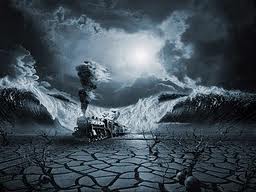Panic Attack Symptoms: Panic Can Kill so Know the Signs Before Disaster Strikes

Panic Attack Symptoms cover such a broad range of physical, emotional and mental feelings that most people are unaware they are even experiencing this biological event. Some people think they are having a heart attack, stroke, serious allergic reaction or going through another type of life threatening process, causing them to become more nervous, thereby enhancing the feelings of the panic attack.
This primitive reaction is quite scary if you do not know what to expect or how to respond so preparing for it can help keep you calm and focused in a real adrenaline-pumping situation.
Panic Attack
Panic attacks actually date back to prehistoric times, when it was a means of survival, as it is the driving force behind whether you choose to stay and fight or take flight. If you choose to fight, it gives you the adrenaline you need for strength and if you opt to run, that same rush of adrenaline gives you speed.
However, some people seem more sensitive to this reaction and experience anxiety or panic attacks for no apparent reason.
Scientists do not know if such an extreme response or high sensitivity is due to wiring gone wrong because of the evolutionary process or a trait that belonged to even some early humans. Still, they did discover that panic attacks occur when a part of the brain, known as the Amygdala, receives a large number of nervous signals that act as triggers.
Once the Amygdala activates as a result of the triggers, it then controls your response to the situation you feel is dangerous.
Panic Attack Symptoms and Signs
Every person experiences their own unique set of panic attack symptoms, as you may only feel dizzy while a family member could have shortness of breath and a racing heart. You or someone you know might also experience:
• Trembling and chills
• Fear of death; anticipation of something bad
• Feeling of loss of control
• Hot flashes or sweating
• Chest or abdominal pain
• Difficulty swallowing or tightness in throat
• Headache
• Nausea
• Faintness
In a crisis, it may be hard to determine the cause of your symptoms since the weather, lack of food and water, excessive exercise or pre-existing medical conditions can also cause similar feelings. To figure out whether you are truly sick or experiencing panic attack symptoms, try taking a few deep breaths, focus on something else, drink water or splash some on your face.
Once you calm down, if your symptoms subside, you probably just had a panic attack but if they persist, you could really have a medical issue.
Treatment
Treating a panic attack without medicine is difficult because you have to be strong enough to fight your mind with your mind. You need to tell yourself everything is okay but most importantly, you need to believe it. To prepare for the possibility of a panic attack, make a list of things that calm you down, practice meditating and learn to distract yourself this way if you have an attack, you can at least try different things to help you calm down. You could also stock up on herbs, teas or scents known to soothe, calm and relax your body and mind.
It is good for you to know what panic attack symptoms are because in a life-threatening situation, you are likely to panic or have anxiety. Being aware of the symptoms can help you to calm down, determine if you’re experiencing a serious medical problem and you can help others who do not know about this type of ailment.
If you can understand your body, and control it, you have a good chance of surviving and making the best use of the adrenaline now pumping through your veins.
Return from Panic Attack Symptoms to Survival Medicine







New! Comments
Have your say about what you just read! Leave me a comment in the box below.